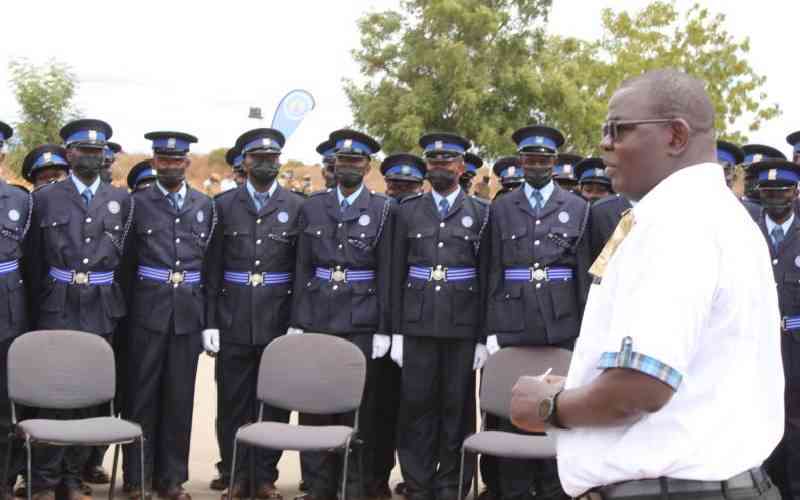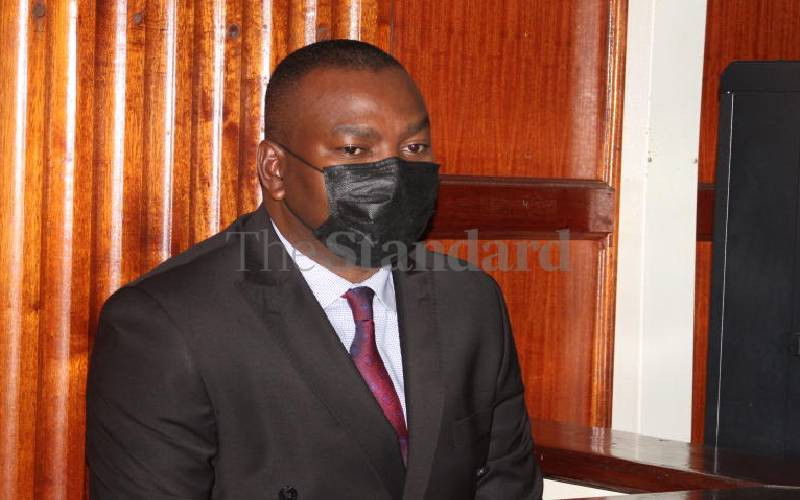There were two incursions into the country by the Al-Shabaab that should leave us mortified by their bold actions and make us question the ease with which this band of ruthless killers is able to get in and out of the country.
In the first incident last Tuesday, the terror group from Somalia stormed the border villages of Kawasalo and Tumtishi in Hullugho sub-county of Garissa County, rounded up villagers and herded them into mosques after which the jihadists vented on the Kenya government’s failures to protect rights of local people before leaving unchallenged.
As if to underscore the government’s incapacity to contain the terror threat, the jihadists returned to another border village a day later — this time in Yumbi in Fafi, Garissa County. Here, they exhorted local people to support the Al-Shabaab in its mission to fight the Kenya government.
Some villagers who had been captured by the terrorists say the jihadists spent an entire night in their village, taking time to prepare and eat an evening meal before leaving the following morning.
Security agencies were clearly caught flat-footed, notwithstanding their claims that they were tipped off by the public and engaged the second group of jihadists in a gun-fight before the terrorists escaped across the border to Somalia.
Although the government has insisted that it thwarted these attacks, the public would have been less forgiving had there been casualties. What should worry us though is how parts of this country can be left under the complete control of an external force even though security was beefed up in the region after a terror attack in Garissa University College left 148 people dead on April 2.
This is unacceptable. It is unacceptable that Kenyans should continue being helpless in the face of such attacks when those entrusted to ensure they are safe make little headway in their investigations. What is also objectionable are reports that government agencies may have been dealing with groups associated with other crimes and piracy to secure hijacked shipping vessels. If a report by the United Nations Monitoring Report on Somalia and Eritrea is anything to go by, then Kenyans who have benefited from acts of piracy should be investigated, particularly as piracy has been used by terrorists to secure funding for their operations.
The United Nations report suggests that billions of shillings from this racket have been laundered in Kenya through establishment of legitimate businesses such as airlines, car import companies and investments in the energy sector.
It is not inconceivable that such businesses are also tied to terrorism. Last month, the government released a list of 13 informal money transfers agents (hawalahs) it closed down on the grounds that they may have links with terrorism activities. So while incursions in border villages may seem too far off to many Kenyans, businesses in the heart of the capital could be the conduit through which operatives of such crimes receive their funding.
Not much information has been forthcoming since investigations into the informal money transfer outfits was launched, but a paper trail and other forms of evidence exist about those government functionaries who dealt directly with agents of piracy knowing that they were complicit in these crimes. These officials should be investigated even as we seek a status report on other organisations the government has linked to terror activities.
It is not beyond reason that perpetrators of such crimes bribe investigators to stop inquiries into their activities. The blanket concealment of results of such investigations under the cloak of insecurity will not wash. We need to know what has been uncovered about those who want to harm us.
 The Standard Group Plc is a
multi-media organization with investments in media platforms spanning newspaper
print operations, television, radio broadcasting, digital and online services. The
Standard Group is recognized as a leading multi-media house in Kenya with a key
influence in matters of national and international interest.
The Standard Group Plc is a
multi-media organization with investments in media platforms spanning newspaper
print operations, television, radio broadcasting, digital and online services. The
Standard Group is recognized as a leading multi-media house in Kenya with a key
influence in matters of national and international interest.
 The Standard Group Plc is a
multi-media organization with investments in media platforms spanning newspaper
print operations, television, radio broadcasting, digital and online services. The
Standard Group is recognized as a leading multi-media house in Kenya with a key
influence in matters of national and international interest.
The Standard Group Plc is a
multi-media organization with investments in media platforms spanning newspaper
print operations, television, radio broadcasting, digital and online services. The
Standard Group is recognized as a leading multi-media house in Kenya with a key
influence in matters of national and international interest.








